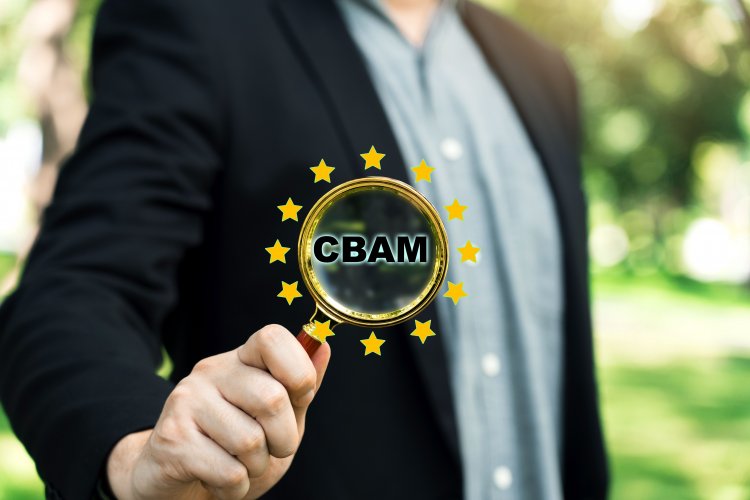While the Ministry of Environmental Protection and Natural Resources of Ukraine reports that “Ukraine continues an active technical and political dialogue with the European Commission on the CBAM,” it suddenly turned out that the European Commission has not even received an official request for a delay from Ukraine. And this is despite the fact that the Cabinet of Ministers of Ukraine formed a working group to agree on an approach to the carbon border adjustment mechanism (CBAM) and hold relevant consultations with European officials back in 2021!
EcoPolitic decided to analyze whether Ukrainian officials are actually taking real steps to facilitate the decarbonization of Ukrainian enterprises and mitigate the impact of the new EU carbon duty, or whether all preparations for the CBAM are limited to purely “decorative” events in the form of various workshops and round tables.
What results does the Ministry of Environment demonstrate?
Recently, the Ministry held a workshop on the work of the carbon adjustment mechanism for imports and reported on the active implementation of EU legislation. But even at this rather narrowly focused event, officials presented steps for transposition to EU climate legislation as their main achievement:
- approval by law of the climate neutrality target by 2050;
- adoption of a plan for the implementation of the Greenhouse Gas Emissions Trading System (GHG ETS);
- restoration of mandatory reporting under the system of monitoring, reporting and verification of greenhouse gas emissions (MRV);
- work on the draft law on the Emissions Trading System.
What did the workshop report say about the main topic of the workshop, the CBAM system? Here are the main points:
- The Ministry of Environment recognizes that the introduction of the ETS does not in itself exempt companies from paying carbon duties;
- it recommends that companies start working on decarbonization investment plans today;
- the officials reminded that the transition period, during which importers must report on the CBA, but do not have to purchase carbon certificates, will last until the end of 2025;
- the Ministry of Environment added that starting from January 1, 2026, metallurgical and cement industries, as well as electricity producers, will be obliged to purchase CBAM certificates, the cost of which will correspond to the price under the EU ETS. The share of emissions they will have to cover will gradually increase.
And finally, the final quote from the Ministry, the veracity of which we will analyze below:
“Ukraine continues an active technical and political dialogue with the European Commission on the application of the CBA mechanism. It is especially important to establish interagency coordination and joint dialog with various EC institutions. The Ukrainian business community is an important and proactive participant in the EU-Ukraine dialogue.”
Ukrainian business asks the state for help
Indeed, representatives of domestic enterprises appealed to the authorities with a proposal to intensify negotiations with the EU on the application of the CBAM to Ukraine in 2020.
However, despite the fact that in 2021 the Ukrainian government formed a working group to harmonize the approach to the CBAM and hold relevant consultations with the European Commission, no meetings within this working group have taken place in 3 years.
Ukrainian business has regularly insisted and continues to insist on the intensification of such negotiations. Stakeholders clearly understand that in the context of a full-scale invasion, they are simply not financially capable of decarbonizing their own enterprises and paying an additional carbon tax on a par with European producers. That is why they are asking the government to agree with European partners to postpone the application of the CBA to Ukraine.
Moreover, our country has the right to apply paragraph 30.7 of the CBAM regulations to Ukraine, which provides for the possibility of excluding a country from the CBAM during force majeure circumstances, including war.
This would help to avoid the devastating impact of this mechanism on the Ukrainian economy. If enterprises that contribute a significant portion of taxes to the country's budget are forced to cease operations, Ukraine's economy may not be able to withstand such a deficit. But if the declarative principle were applied, domestic enterprises could report their emissions to the EU, but would not have to pay the cost of certificates.
The European Commission has not heard anything about the postponement
The next day after the workshop, it became known that the European Business Association responded to the EBA's request that no country had requested a delay in the introduction of the CBAM environmental fee.
“To date, no country has requested the European Commission to invoke Article 30.7. Should such a request arise, the Commission should assess the situation and submit a report to the European Parliament and the Council, accompanied, if necessary, by a legislative proposal to address these exceptional circumstances,” the European officials said in their response.
And here a reasonable question arises: what has the working group on negotiations created by the Cabinet of Ministers been doing for 4 years that its members have not even bothered to submit an official request to the European Commission to postpone the CBAM for Ukraine in the event of force majeure? And why does the chairman of the Verkhovna Rada Committee on Environmental Policy and Nature Management, Oleh Bondarenko, declare his intention to file such an appeal when there are only 8 months left before the full implementation of the EU carbon tax?
What are the Ukrainian authorities waiting for? Why are they ignoring business requests for help in decarbonization and easing the financial burden on domestic industry? And how can we calmly watch the economic collapse of Ukraine in the face of the CBAM and do nothing? These questions remain unanswered for us.





